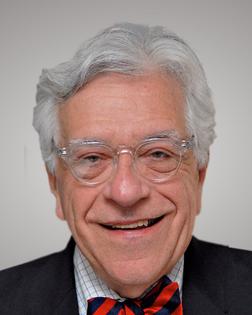The God Squad: Stuck in my grief work
Q: My husband passed away Aug. 14, 2023, the day of our 52nd anniversary. It is now almost one year. Therapy helps me talk (mostly) cry and my “good friends” check on me constantly. Many acquaintances keep me busy and I do have clubs I belong to. My sons and their families (grandkids are the best medicine) keep me in the loop. I am also so grateful for my one daughter-in-law. I cry every day, don’t eat properly, and hurt inside.
I am angry that he left me on our anniversary. I think I closed my mind up after he died and didn’t want to hear anything from anyone. I also blame myself for not staying later on that Sunday visit with him. If only I’d stayed! Why didn’t I? This haunts me, and I don’t know how long I can feel this way. Thanks for listening, Rabbi. My eyes are so filled with water I cannot see (sea). Be well and safe. – (From M)
A: My dear M, may God comfort you on your husband’s death. Thank you for your painful, wise and courageous email.
One of the great ironies of the human condition is that we are all different and yet remarkably we die and we react to the death of loved ones in pretty much the same way. The person who discovered the five universal stages of grief was Dr. Elisabeth Kübler-Ross in her 1969 groundbreaking book, “ On Death and Dying.” The five stages may help you understand where you are in your journey through grief and where you still must go.
Denial.
This is the first stage, and it is expressed in the common way, “I can’t believe they are gone.” You know they are dead, but you can’t accept the fact that they are dead. You, dear M, have already passed through this stage. You have accepted your husband’s death, but you have not integrated it into your life. Denial is usually more severe when it was a sudden traumatic death and less severe when death came after a long illness like your husband’s.
Anger
What I most admired about your email was the guts it took for you to explicitly admit that you were angry at your husband for dying on your anniversary. It may seem embarrassing to be angry at a dead person, but it is actually quite normal. When you think about the deep ways your life is intertwined with your spouses’, their death plunges you into deep and disorienting chaos. Anger is a natural reaction to having your life turned upside down. Anger is often more pronounced in mourners who are used to having control over things. Death is proof that we are not in control.
Try to connect to the parts of your soul that are willing and able to accept death and let go of those parts that try to alter what cannot be altered.
Bargaining
This is the next stage for you, dear M. It seems as if you have already entered the bargaining stage of grief. The phrase, “What if…” is a bargaining phrase. You are upset that you did not stay longer on that last day. What do you think would have happened? Do you think your presence would have prevented your husband from dying? A revealing study showed that most people die in the middle of the night. Apparently, they need to be alone and not surrounded by those they love in order to finally let go of life. My last words to my father before he died was, “Dad, it is OK to let go. I love you.”
Depression
Accepting sadness without denial or anger or bargaining is a profound human achievement. To let sadness claim you prevents sadness from consuming you. One of the most unintentionally irritating comments of people trying to comfort mourners is, “Everything will be OK.” This is both irritating and untrue. Everything used to include your loved one, but it will never ever again include him/her. What is true is that things will be OK in a new and broken way. The hole in my life left by the death of Father Tom will never be filled. I am sad every day, but I accept this sadness as a measure of my love for him.
Acceptance
This is the highest and most holy stage of grief. It is an acceptance of the gift of life and an acceptance of the inevitability of death. I believe that a belief in life after death for our soul helps us immensely gain acceptance of death. I believe and I urge you, dear M, to believe that you will not be separated forever from those you love.
God comfort you.
(Send ALL QUESTIONS AND COMMENTS to The God Squad via email at godsquadquestion@aol.com. Rabbi Gellman is the author of several books, including “Religion for Dummies,” co-written with Fr. Tom Hartman. Also, the new God Squad podcast is now available.)
©2024 The God Squad. Distributed by Tribune Content Agency, LLC.
(c) 2024 THE GOD SQUAD DISTRIBUTED BY TRIBUNE MEDIA SERVICES, INC.












Comments